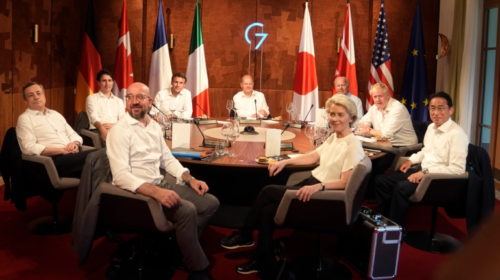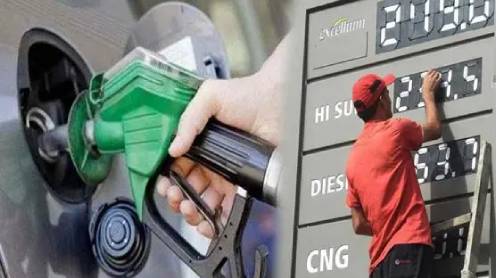On 2 September 2022, the Group of Seven (G7) finance ministers released a statement that confirmed the future implementation of a price cap on Russian-origin crude oil and petroleum products (the Price Cap). Under the proposed measure, the provision of services related to the maritime transport of Russian-origin crude oil and petroleum products will be prohibited unless the products are purchased at or below a certain price (to be determined).
The Price Cap also has the support of the European Commission, although all 27 EU member states are yet to unanimously agree to the measures. On 20 September 2022, Australia announced its support for the Price Cap.
This Price Cap is intended to establish a basis for Russian-origin crude oil and petroleum products to be exported by sea under a capped price and (as now indicated by OFAC) will achieve the following three objectives: “(i) maintain a reliable supply of seaborne Russian oil to the global market; (ii) reduce upward pressure on energy prices; and (iii) reduce the revenues the Russian Federation earns from oil after its own war of choice in Ukraine has inflated global energy prices”.
If Russian-origin crude oil and petroleum products are purchased above the Price Cap price, then individuals and entities of the G7 countries (and those coalition countries who also sign up) will be prohibited from providing services in respect of the maritime transport of such products. The purchase is still permitted, just not the corresponding G7 services.
Whilst not currently confirmed, it is expected that the list of services will include technical assistance, brokering, insurance, reinsurance and financing. This will have a significant impact, particularly as it is estimated that 90 per cent of maritime insurance has a connection to the EU or United Kingdom.
From the OFAC guidance, it appears that the Price Cap will rely on a recordkeeping and attestation process that allows each party in the supply chain of seaborne Russian-origin crude oil or petroleum products to demonstrate or confirm that the oil or petroleum products have been purchased at or below the Price Cap price.
In the first instance, the Price Cap will be signed by the G7 countries: Canada France, Germany, Italy, Japan, the United Kingdom and the United States.
As mentioned, the remaining EU member states have also been invited to support the Price Cap whilst Australia has already announced its support.
When does the Price Cap come into force?
OFAC has confirmed that the Price Cap will take effect on 5 December 2022 for crude oil and 5 February 2023 for petroleum products. This is in coordination with the EU’s Russian oil embargo, which takes effect on the same dates.
The level of the Price Cap has not yet been announced. However, on 8 September 2022, U.S. Deputy Treasury Secretary Wally Adeyemo announced that the Price Cap will be set “above the cost of production”. Further, on 9 September 2022, Elizabeth Rosenberg (U.S. Treasury Department Assistant Secretary for Terrorist Financing and Financial Crimes) told Reuters that “the price cap price should be … in line or consistent with historical prices accepted by the Russian market.”
OFAC has also confirmed that countries that agree to implement the Price Cap will be able to participate directly in setting the actual price through the coalition’s consultative process.
What is the effect on finance and insurance?
As set out above, the prohibition on services related to the maritime transport of Russian-origin crude oil and petroleum products will likely include the provision of finance, insurance and reinsurance services. This means that it will be prohibited for financial institutions and insurers in the G7 countries (including the United Kingdom) to provide finance and insurance for the maritime transport of Russian-origin crude oil and petroleum products purchased above the Price Cap price.
Given the majority of maritime insurers are based in the G7 states, this will make it difficult for the relevant parties to obtain insurance for the transport of Russian-origin crude oil and petroleum products purchased above the Price Cap price.
How will the Price Cap be enforced?
Seaborne Russian-origin crude oil and petroleum products purchased at prices at or below the Price Cap price will be eligible for maritime services from firms in coalition countries implementing the Price Cap. Service providers for seaborne Russian-origin crude oil and petroleum products will not face sanctions enforcement action, provided that they obtain certain documentation or attestations that the purchase price of the oil or petroleum products is at or below the Price Cap price.
As OFAC has remarked, where a service provider without direct access to price information reasonably relies on a customer attestation, that service provider will not be held liable for potential sanctions breaches because of those acting in bad faith who seek to cause a violation of the Price Cap or evade sanctions.
U.S. Senator Chris Van Hollen said at a recent U.S. Senate committee hearing that “the idea behind this legislation is to provide a uniform backstop worldwide and say to any financial institution that’s thinking about financing or participating in a transaction to purchase Russian oil above the price cap set by the G7 — [you] will face penalties.”
It has subsequently been argued that such enforcement capabilities are unnecessary because the prospect of cut-price Russian oil strongly incentivises third countries to participate in the Price Cap anyway.
Rosenberg also told the same Senate committee that “there is an overwhelming economic incentive for buyers to purchase under the price cap so they can engage these [G7] service providers. It will be cheaper and less risky to move Russian oil cargoes this way.”
How will this affect the planned EU oil embargo?
If EU member states sign up to the G7’s Price Cap plan, it seems inevitable that the EU-wide ban on the provision of services to Russian-origin oil exporters (under Articles 3m(2) and 3n of Regulation (EU) 833/2014) will be amended in favour of trying to limit the price at which Russian exporters can sell their oil, in line with the Price Cap.
Essentially, the EU’s current sanctions aim to prohibit EU banks and insurers from financing or insuring Russian-origin oil exports to any country, alongside a flat ban on imports to the EU, in the hope of severely curtailing Russian oil production.
But, the effect of such sanctions runs counter to the G7 approach, which hopes to achieve the opposite: ensuring a steady supply of low price energy for developing countries while helping to keep global oil prices stable, a major influence on escalating inflation currently being experienced by several advanced economies.
Impact on the private sector
The U.S. Treasury has indicated that G7 trading firms, banks and insurers were heavily engaged during the design of the Price Cap policy and that consultations are ongoing whilst the Price Cap mechanism is being fine-tuned. Given that the Price Cap’s successful implementation is reliant on accurate declarations along the whole supply chain, it makes sense that the Price Cap policy is driven by this collaboration.





